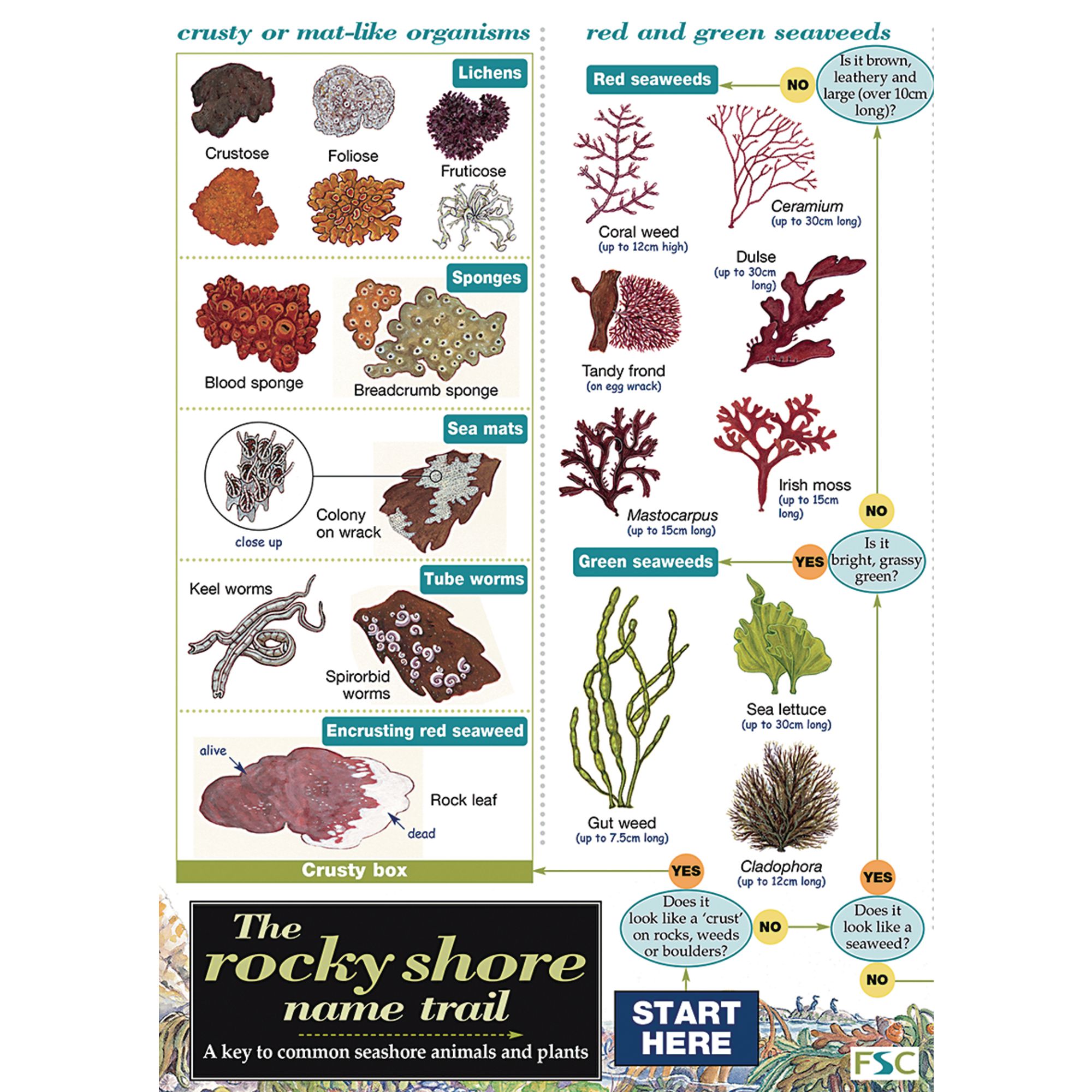Name Trails guide users through a simple key to help them to identify the plants and animals that they find. Text on the reverse side of the charts provides further information. Splash proof and wipe clean for outdoor use. They are small enough to take into the field as the charts fold to B5 size (approximate size: 240 x 180mm). The FSC Rocky shore name trail features the most common limpets, mussels, periwinkles, top shells, starfish, crabs, shore fishes and other animals you are likely to see, as well as seaweeds, lichens and encrusting sponges. Simple yes/no questions guide you to the colour illustrations for each group. Text on the reverse side describes what to look for in each group. Rockpools and rocky shores are a great place to find seashore animals and plants in their natural habitat. The dominant plant-like organisms of rocky shores, the seaweeds, are all algae. Unlike plants, seaweeds do not have true roots, stems or leaves. Instead the holdfast, stipe and frond perform the function of these tissues. Like most plants, seaweeds use the sun's energy to make sugars through photosynthesis. They possess the green pigment chlorophyll, and some also possess extra accessory pigments of different colours. Seaweeds are divided into three groups: brown, red and green. Almost every major group of animals has a representative on the rocky shore. Sponges are simple animals that filter food particles from seawater. Sea anemones have a soft body and stinging tentacles. Molluscs are soft-bodied animals, but many have shells. They include bivalves like mussels, and rocky shore snails like limpets and top shells. Crustaceans are very common, and include lobsters, crabs and barnacles. Other exciting finds in rockpools include starfish, sea urchins, brittlestars and sea squirts.


